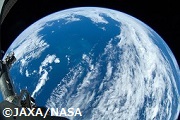| タイトル | Ambient Light Intensity, Actigraphy, Sleep and Respiration, Circadian Temperature and Melatonin Rhythms and Daytime Performance of Crew Members During Space Flight on STS-90 and STS-95 Missions |
| 本文(外部サイト) | http://hdl.handle.net/2060/20000020659 |
| 著者(英) | Hughes, R. J.; Elliott, A. R.; Dijk, D.-J.; Prisk, G. K.; West, J. B.; Neri, D. F.; Czeisler, Charles A.; Ronda, J. M.; Wyatt, J. K.; Young, L. R. |
| 著者所属(英) | NASA Ames Research Center |
| 発行日 | 1999-01-01
1999 |
| 言語 | eng |
| 内容記述 | Sleep disruption and associated waking sleepiness and fatigue are common during space flight. A survey of 58 crew members from nine space shuttle missions revealed that most suffered from sleep disruption, and reportedly slept an average of only 6.1 hours per day of flight as compared to an average of 7.9 hours per day on the ground. Nineteen percent of crewmembers on single shift missions and 50 percent of the crewmembers in dual shift operations reported sleeping pill usage (benzodiazepines) during their missions. Benzodiazepines are effective as hypnotics, however, not without adverse side effects including carryover sedation and performance impairment, anterograde amnesia, and alterations in sleep EEG. Our preliminary ground-based data suggest that pre-sleep administration of 0.3 mg of the pineal hormone melatonin may have the acute hypnotic properties needed for treating the sleep disruption of space flight without producing the adverse side effects associated with benzodiazepines. We hypothesize that pre-sleep administration of melatonin will result in decreased sleep latency, reduced nocturnal sleep disruption, improved sleep efficiency, and enhanced next-day alertness and cognitive performance both in ground-based simulations and during the space shuttle missions. Specifically, we have carried out experiments in which: (1) ambient light intensity aboard the space shuttle is assessed during flight; (2) the impact of space flight on sleep (assessed polysomnographically and actigraphically), respiration during sleep, circadian temperature and melatonin rhythms, waking neurobehavioral alertness and performance is assessed in crew members of the Neurolab and STS-95 missions; (3) the effectiveness of melatonin as a hypnotic is assessed independently of its effects on the phase of the endogenous circadian pacemaker in ground-based studies, using a powerful experimental model of the dyssomnia of space flight; (4) the effectiveness of melatonin as a hypnotic is assessed during the STS-90 (Neurolab) and STS-95 missions in a double-blind placebo-controlled trial. In both flight-based experiments, the effects of melatonin on sleep stages and spectral composition of the EEG during sleep will be determined as well as its effects on daytime alertness and performance; (5) the impact of space flight on sleep and waking neurobehavioral alertness and performance in 30-45-year-old astronauts is compared with its impact in a 77-year-old astronaut. This case study is the first to assess the effects of space flight on an older individual. Because the investigators are still blind to the treatment in this double-blind, placebo-controlled trial, preliminary results will be presented independent of the drug condition. |
| NASA分類 | Aerospace Medicine |
| 権利 | No Copyright |
|

